
|

|
 |
|
|
An up close and personal interview with U.S. Police Veteran and Togetherweserved.com Member:
CPT Patrick J Grove (Ret) (1973-2010)
Kansas City Police Department
WHAT INFLUENCED YOUR DECISION TO MAKE A CAREER IN LAW ENFORCEMENT?
 My oldest bother Ron was a motor officer when I was growing up. I always thought it was cool to see him ride in for lunch or whenever I saw him out on the streets. His dedication and physical appearance lead me to the law enforcement side of public safety. My oldest bother Ron was a motor officer when I was growing up. I always thought it was cool to see him ride in for lunch or whenever I saw him out on the streets. His dedication and physical appearance lead me to the law enforcement side of public safety.
As I was growing up, my dad was the Fire Chief in my home town. Many times I sat in his fire car when he came home for lunch and played with the radio. With no power, it was pretty harmless for the little curious kid I was. I knew that I would end up in some type of public service, and after a stint in the Marine Corps, I worked for a while as a paramedic and soon became a fire fighter. That life was just not for me. It seemed too sedentary and I was used to just a little more activity. I joined the St. Joseph, MO Police Department in August 1973 at the age of 21.
WHAT HAS BEEN YOUR CAREER PATH AND WHAT ARE YOU DOING NOW?
After joining the St. Joe PD, I worked patrol for about 2 years. A friend and I developed a concept called the 'Street Crimes Unit' and sold it to the department. We worked it together for the next 3 or 4 years and were the topic of many news articles,  both paper and TV. We were dubbed the 'Starsky and Hutch' of St. Joe. I was able to land a promotion to Corporal in late 1975 and went back to patrol. both paper and TV. We were dubbed the 'Starsky and Hutch' of St. Joe. I was able to land a promotion to Corporal in late 1975 and went back to patrol.
In 1978 the Chief promoted me to Sergeant and made me the Director of Training and Aide to the Chief. I was responsible for developing all the training manuals, procedural instructions and general orders for the department as they had none before that. I also was assigned as background investigator for all new applicants for the PD.
In 1980, I made application and was accepted to the Kansas City, MO PD. I worked patrol, governor's security detail and planning and research where I was promoted to sergeant in 1985. As a Sergeant I worked patrol, records, SWAT, Street Narcotics Tactical and finally Helicopter where I obtained a Commercial Helicopter License from the FAA. I promoted to Captain in 1999 and worked HIDTA, SWAT Commander, PAL/DARE/Great CO and finally back to Patrol Support (Helicopter, K-9, Mounted Patrol and Bomb & Arson) Commander. I ended up with about 1500 hours flight time, some in fixed wing before retiring in July 2010.
One evening in September 1990 I discovered how dangerous it is to be a police officer. I was assigned as the sergeant of a search warrant tactical entry team. We received information from the undercover cop that they had just made the confirmation buy and as best as he could tell, there were 'no weapons in the house.' Like most drug houses of the era, various techniques were used to restrict entry. In this particular case the drug dealers had a steel security door in front of a wooden door that was partly ajar. Our entry team moved to the front of the house while 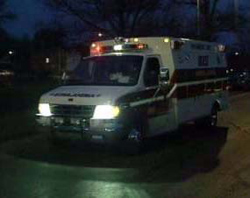 other officers went to the back and the sides. Once on the porch, the suspect heard or saw us and ran and slammed the wooden door shut and fired his .357 Mag through the door. One bullet struck me in the left wrist with such great force my hand was pushed way back. Even then I did not know I had been hit until my point man looked at me and shouted, "The Sarge has been shot." Now that was something I really didn't want to hear but it didn't stop the action. Although the steel door was still locked, the gun shot through the wooden door reopened it enough that I could see the suspect running up the steps to the second floor. I launched a flash bang which took out a couple of windows. Since this was now an armed barricaded situation, we held our positions and called for more SWAT officers to assist. I stayed with the team until reinforcements arrived and then I walked down to the ambulance for treatment. other officers went to the back and the sides. Once on the porch, the suspect heard or saw us and ran and slammed the wooden door shut and fired his .357 Mag through the door. One bullet struck me in the left wrist with such great force my hand was pushed way back. Even then I did not know I had been hit until my point man looked at me and shouted, "The Sarge has been shot." Now that was something I really didn't want to hear but it didn't stop the action. Although the steel door was still locked, the gun shot through the wooden door reopened it enough that I could see the suspect running up the steps to the second floor. I launched a flash bang which took out a couple of windows. Since this was now an armed barricaded situation, we held our positions and called for more SWAT officers to assist. I stayed with the team until reinforcements arrived and then I walked down to the ambulance for treatment.
I was taken to the hospital where a doctor friend of mine was on duty that night in the ER. He said due to the wood splinters from the door he would have to debris the wound, meaning he needed to get all the foreign matter out so he could assess the damage. He came over with a saline cleaning solution to wash it out and then started scrubbing it with what felt like a steel bristled brush. Man, I knew then that I had been shot. I went to surgery the next morning and they found two tendons blown out, two main nerves severed and one or two bones in the wrist blown out. Evidently there are about 16 small bones in the wrist. At any rate, I went through one more surgery about a year later and after 18 months of surgeries and rehab, I returned to full duty.
DID YOU SERVE IN THE MILITARY PRIOR? AND IF SO, IN WHAT BRANCH OF SERVICE? IN WHAT WAYS HAS MILITARY SERVICE INFLUENCED YOUR CAREER IN LAW ENFORCEMENT?
 I went into the Marine Corps directly out of high school. My Uncle Ed Grove was a SgtMaj during WWII and my Cousin Tom Consodine was also a WWII Marine Vet that saw action on Iwo Jima. Tom ended up serving a career in the Marines. Both these guys, along with my Dad and brother Ron, were definite role models in my life and people that I call heroes for what they did. I went into the Marine Corps directly out of high school. My Uncle Ed Grove was a SgtMaj during WWII and my Cousin Tom Consodine was also a WWII Marine Vet that saw action on Iwo Jima. Tom ended up serving a career in the Marines. Both these guys, along with my Dad and brother Ron, were definite role models in my life and people that I call heroes for what they did.
Going into law enforcement was fairly common for former Marines back in the 1970s. I think it was because good police departments were like the Marine Corps: definable rank and organizational structures, discipline and a code of duty, honor and commitment.
WHICH, OF THE AGENCIES OR DEPARTMENTS YOU WERE ASSIGNED TO, DO YOU HAVE THE FONDEST MEMORIES OF AND WHY?
While working Patrol is and will always be the meat of Law Enforcement, my best and most rewarding work during my many positions was as a Helicopter Pilot, Supervisor/Sergeant and then back again as the Unit Commander. Unless you have ever flown a helicopter you just don't know what a feeling that you have flying an aircraft that can stop in mid-air and observe from above while assisting officers on the ground with car and foot chases while using a thermal imaging (infrared) system to spot the bad guys hiding in the bush. What a thrill and satisfying job.
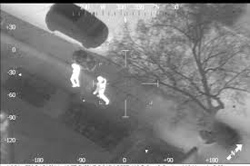 I had always had a fascination for flying and especially helicopters. I guess that was from my stint in the Marines where I rode in the back of them many times but never as a pilot. There were many eventful days in Helicopter: engine malfunctions, emergency landings, car chases, foot chases and surveillance. During nighttime surveillance we used FLIR (forward looking infra-red) that became a 'must have' tool during my time in the unit. When suspects hid from the police in the dark or under leafy trees, we'd use the FLIR to find them and direct the pursuing officer to surprised suspects who had no idea how they were found. The FLIR was worth its weight in gold. I had always had a fascination for flying and especially helicopters. I guess that was from my stint in the Marines where I rode in the back of them many times but never as a pilot. There were many eventful days in Helicopter: engine malfunctions, emergency landings, car chases, foot chases and surveillance. During nighttime surveillance we used FLIR (forward looking infra-red) that became a 'must have' tool during my time in the unit. When suspects hid from the police in the dark or under leafy trees, we'd use the FLIR to find them and direct the pursuing officer to surprised suspects who had no idea how they were found. The FLIR was worth its weight in gold.
We often offered 'ride-a-longs' to citizens and other LE types, but on one day my wife wanted to go for a ride. I was just going to take her for a little tour of the city and as luck would have it, officers located a stolen vehicle and the suspect bailed and ran. I moved over to the area where the foot chase was going and pinpointed the suspect for the patrol officers to apprehend him. Remember, the little lady was my observer that day! In the '90's we flew the small bubble front two seat helicopters that were piston engine driven. They were quite maneuverable and could make very tight circles at altitude, which is what I was doing. Flying the helicopter is the most importing part of any equation during any situation and that was my main focus. 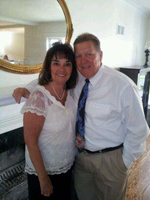 You have to make sure that there are no other folks in your flight area, scan the gauges constantly...and now try to catch a quick glimpse of the perp. After doing this circling for about 3 - 5 minutes, I asked the wife over the intercom if she was doing OK. That was a big...NO! She was getting sick. I was able to direct the officers to the suspect and make a beeline for the pad so I could get her out of the helicopter. She never did lose her lunch...but damn close. You have to make sure that there are no other folks in your flight area, scan the gauges constantly...and now try to catch a quick glimpse of the perp. After doing this circling for about 3 - 5 minutes, I asked the wife over the intercom if she was doing OK. That was a big...NO! She was getting sick. I was able to direct the officers to the suspect and make a beeline for the pad so I could get her out of the helicopter. She never did lose her lunch...but damn close.
It was my most fun assignment where I spent 4 years as a supervisor/pilot. I later was promoted to Captain and after several different assignments, I was transferred back to the Patrol Support Unit where I had K-9, Mounted Patrol, Bomb and Arson and as you can guess, Helicopters, which at the time, the Kansas City PD was the first helicopter unit in the world to utilize full time 24/7 helicopters for patrol work.
FROM YOUR ENTIRE LAW ENFORCEMENT CAREER WHAT PARTICULAR INCIDENT HAD THE BIGGEST IMPACT ON YOU AND WHY?
As a young officer, actually a Corporal but only 24 or so years old, I was the first on the scene of a hit and run involving a 3 year old girl on a tricycle. I had a 3 year old myself at the time and this  was only two blocks from my house where the accident occurred. The child was lifeless and I began CPR. It seemed as though I got her breathing again and a faint heartbeat. When the ambulance arrived, I jumped in the back with her and continued life support. After arriving at the hospital and hospital administered life support continuing, the ER doctor came out and told me she didn't make it. He told me that I did everything that I could. I can still see this lifeless innocent little girl needing my help and I was unable to help her. It taught me humbleness and that while I am there to help, I can't help everyone. You try to do your best and that is all that you can do. was only two blocks from my house where the accident occurred. The child was lifeless and I began CPR. It seemed as though I got her breathing again and a faint heartbeat. When the ambulance arrived, I jumped in the back with her and continued life support. After arriving at the hospital and hospital administered life support continuing, the ER doctor came out and told me she didn't make it. He told me that I did everything that I could. I can still see this lifeless innocent little girl needing my help and I was unable to help her. It taught me humbleness and that while I am there to help, I can't help everyone. You try to do your best and that is all that you can do.
OF THE MEDALS, AWARDS OR BADGES YOU RECEIVED, WHAT IS THE MOST MEANINGFUL TO YOU AND WHY?
Pilot wings are awarded to the successful candidate who reaches 300 hours of flight time. By this time both my Private and Commercial Helicopter Licenses have been issued by the FAA after successful check rides.
WHICH INDIVIDUAL PERSON FROM YOUR CAREER MADE THE MOST POSITIVE INFLUENCE ON YOU AND WHY?
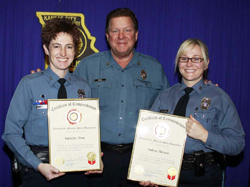 There is no one individual but rather numerous people who have influenced my career. There were positive role models in the form of partners and superiors. Watching them in action had a great impact on how to do things correctly. But there were bad bosses who also taught what works and what doesn't. There is no one individual but rather numerous people who have influenced my career. There were positive role models in the form of partners and superiors. Watching them in action had a great impact on how to do things correctly. But there were bad bosses who also taught what works and what doesn't.
As I made my way through the rank structure, I remembered the way bad commanding officers treated their troops. I made sure that I never emulated their 'leadership', or lack thereof. My style was to develop subordinates and prepare them for leadership roles as best I could. I also believed strongly in giving rewards to police officers who deserve them. It strengthens morale and increases productivity.
CAN YOU RECOUNT A PARTICULAR INCIDENT FROM YOUR CAREER THAT WAS FUNNY AT THE TIME AND STILL MAKES YOU LAUGH?
As a young officer in KCMO, I responded to a fight call with my partner. We headed up the hill on the street of the call and saw the fight in the yard. As we approached, I parked on the hill and we jumped out to break up the fight. Just as we got to the guys you could hear a loud crash behind us. As we looked back, the patrol car had rolled backwards and tore the door off of my side of the car. I had not put the car in park or put the emergency brake on. The guys were arrested for fighting and when we got to court, and after our testimony, the 'fighters' told their story and said the only reason that we took them to jail is because they laughed when the car door was torn off. The judge dismissed the charges. Oh well!
WHAT DO YOU CONSIDER THE MOST IMPORTANT LESSON YOU HAVE LEARNED AS A LAW ENFORCEMENT OFFICER?
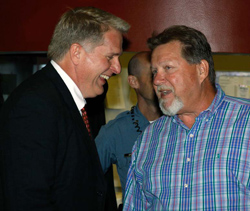 There is no one thing about learning to be a good cop. The whole package consists of education, training, gaining experience in every assignment, observing how other officers conduct themselves and trying to emulate the good ones. And always carry out your duties with the integrity that gains respect within the department and outside on the streets. There is no one thing about learning to be a good cop. The whole package consists of education, training, gaining experience in every assignment, observing how other officers conduct themselves and trying to emulate the good ones. And always carry out your duties with the integrity that gains respect within the department and outside on the streets.
Photo is of me talking to the KCPD Chief Jim Corwin on my retirement date.
WHAT LAW ENFORCEMENT ASSOCIATIONS ARE YOU A MEMBER OF, IF ANY? WHAT SPECIFIC BENEFITS DO YOU DERIVE FROM YOUR MEMBERSHIP(S)?
I am a 40 year member of the Fraternal Order of Police and have been a member of the Missouri Peace Officers Association, International Association of Law Enforcement Analysts and Aviation Law Enforcement Association.
Associations give the member the opportunity to network with others in their field of expertise. Once you see that there are other ways of doing the work you do, maybe better ways, you will be able to understand the benefit of associations.
HOW HAS SERVING AS A LAW ENFORCEMENT OFFICER INFLUENCED THE WAY YOU CONDUCT YOUR PERSONAL LIFE AND YOUR RELATIONSHIPS WITH OTHERS OUTSIDE OF THE DEPARTMENT?
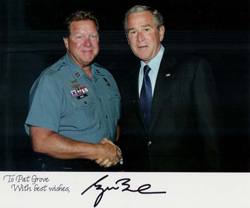 I believe most civilians want to respect those who serve in Law Enforcement and I also believe it is the duty of every police officer to do their utmost to earn that trust every day. I discovered very early on that if my command presence and demeanor imparted respectfulness, I would immediately begin gaining the trust and respect of the citizens. By demonstrating a genuine caring for their well-being, their respect and trust grew even more. I know that by conducting all police business with integrity and purpose, I not only served the citizens of my community in a way becoming of myself and my uniform but my entire police department as well. I believe most civilians want to respect those who serve in Law Enforcement and I also believe it is the duty of every police officer to do their utmost to earn that trust every day. I discovered very early on that if my command presence and demeanor imparted respectfulness, I would immediately begin gaining the trust and respect of the citizens. By demonstrating a genuine caring for their well-being, their respect and trust grew even more. I know that by conducting all police business with integrity and purpose, I not only served the citizens of my community in a way becoming of myself and my uniform but my entire police department as well.
These principles have served me well in my personal life and in my relationship with others.
WHAT ADVICE WOULD YOU HAVE FOR A ROOKIE WHO HAS JUST PUT ON THE BADGE?
When a rookie first hits the streets he or she may have a tendency to cut corners so you can be first at a call, get your hands dirty and get in on the action. If you rush into things without the necessary experience, you can lose the focus needed to successfully handle the call or situation. These mishaps generally occur in the officer's first three years of service...that goes for most discipline issues too.
Yes, it is always fun to get in on the action, but not only do these things go as you might expect and then you really open up yourself to violations of the 'One Officer Car Procedure' and 'Officer Safety' issues. Stay focused and be ever vigilant. If you have not developed these traits or failed to apply them, you will not last long.
IN WHAT WAYS DO YOU FEEL THIS WEBSITE CAN BENEFIT THE LAW ENFORCEMENT COMMUNITY?
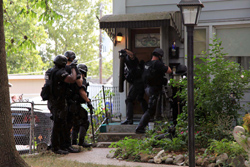 Sharing ideas and work stories always allows the others to see what works and what doesn't. It's also a great place to expand the brotherhood beyond our own departments. Camaraderie seemed to get lost as we made it though the end of the 1990s. Choir practices were a great way to unwind, talk to your fellow brothers and sisters about the calls of the day. It was a great stress reliever and it grew us closer. Folks outside this job will never understand the work we do. Firemen have always been the good guys and cops, the bad guys. It is a truly rare occasion that we get a simple thank you. I want to congratulate all my retired colleagues out there and thank each of you, retired and active for doing what you do. I appreciate you. Sharing ideas and work stories always allows the others to see what works and what doesn't. It's also a great place to expand the brotherhood beyond our own departments. Camaraderie seemed to get lost as we made it though the end of the 1990s. Choir practices were a great way to unwind, talk to your fellow brothers and sisters about the calls of the day. It was a great stress reliever and it grew us closer. Folks outside this job will never understand the work we do. Firemen have always been the good guys and cops, the bad guys. It is a truly rare occasion that we get a simple thank you. I want to congratulate all my retired colleagues out there and thank each of you, retired and active for doing what you do. I appreciate you.
|
CPT Grove's Police
Badge DisplayCourtesy of

|
|
Share this Voices on:


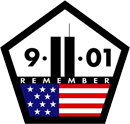

|
|
TWS VOICES
TWS Voices are the personal stories of men and women who currently serve, or who previously served as a US Police or Federal Officer, and conveys how serving their Country and Community has made a positive impact on their lives. If you would like your story to be featured in a future edition of Voices, or know someone else who may be interested, please contact TWS Voices HERE.
This edition of Police Voices was supported by:
Police.Togetherweserved.com
For all current serving and veteran Police Officers, Together We Served is a secure, feature rich website enabling Officers to reconnect with lost Brothers and Sisters, share in the camaraderie of other Officers, network for professional purposes and to honor the service of all.
To join Police.Togetherweserved.com, please click HERE.
| |